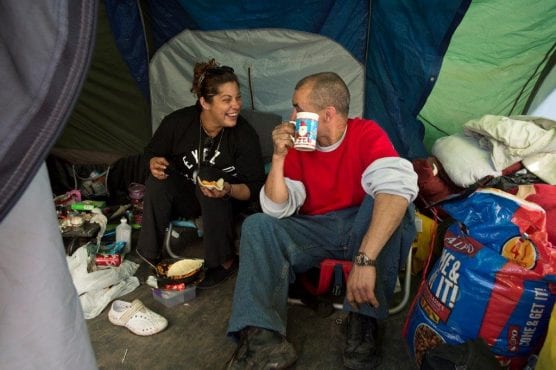The Los Angeles County Board of Supervisors voted unanimously Tuesday to overhaul the county’s response to residents having health crises, directing officials to design a system that dispatches experts in health and de-escalation — not police — during emergencies.
Advocates for L.A. County residents experiencing homelessness have long argued that having unarmed workers skilled in addressing substance abuse and mental illness respond to certain 911 calls would be a safer and more appropriate crisis response alternative.
L.A. County residents who call police during a mental health crisis have for years faced the uncertainty of either being provided medical attention or experiencing an aggressive, and sometimes deadly, response from law enforcement.
Supervisor Janice Hahn said during the board’s meeting Tuesday the county’s current alternative to a police-only response is falling short.
Hahn cited a Los Angeles Times article on Eric Briceno, a man experiencing mental illness who was killed by LA County Sheriff’s Department officers this past March, as evidence of a breakdown in the system.
The department’s Mental Evaluation Team, a program that pairs an officer with a licensed mental health expert to answer emergency health calls, failed to respond to Briceno’s family’s call for support.
Briceno was beaten, pepper-sprayed and hit with a Taser at least seven times in his room by officers.
“This is a problem,” said Hahn. “It’s a tragic failure and we need to fix it.”
Hahn has spearheaded the county’s efforts to revamp its health crisis response system, introducing a motion approved this past March to begin shaping a new plan with input from social service groups and health, fire and law enforcement agencies.
The new health crises response system will be rooted in the county’s “care first, jail last” framework, a set of governing principles recommended by the board’s Alternatives To Incarceration workgroup.
The work group — composed of community organizations, health experts and police accountability advocates — points to fatal police shootings of homeless people with mental illness, such as the 2015 killing of Charly “Africa” Keunang in L.A.’s Skid Row, as evidence of a system beyond reform.
In June, the Board of Supervisors voted to develop a public phone number similar to 911 that residents can call during a health crisis in order to access both medical and social services.
L.A. County Department of Mental Health director Jonathan Sherin told supervisors during the virtual board meeting Tuesday that his department now has a direct phone line that police can call during health emergencies to connect residents with services.
Sherin said his department will study how 911 call management can move to a non-police agency that receives calls and determines where to send unarmed, medically trained crisis response units.
“Institutional inequality is at play in big fashion when it comes to how we respond to communities,” Sherin told the board. “We need to meet health and human service needs in our communities with health and human service responses. We need to help people who are suffering and get them services, not punishment.”
In a report to the board last month, Sherin said a “regional crisis call center” is one of the three components of the county’s revamped health crises response system.
The other two components are a mobile team of trained crisis responders and a network of facilities where people in crisis can be stabilized before being connected to other services.
Under the motion approved Tuesday, the county will hire a consultant to audit its existing crisis response system and propose immediate changes as well as strategies for securing long-term state and federal funding.
The motion calls for a report to the board in 60 days.
In another board action, supervisors approved $72 million in initial funding to launch the Alternatives to Incarceration initiative, which will be led by former L.A. County Superior Court Judge Songhai Armstead.
The project will divert thousands of people away from jails and into health and social service programs, an effort supervisors believe will reduce harm to communities of color and save the county money.
Supervisors cited a University of California, Los Angeles, study released last week found that in 2019, the county spent $154 million booking Black people — who make up 8% of county residents but represent nearly one-third of the jail population — into police custody.
“For far too long, the county has been lopsided in its resource allocation — despite knowing that no one gets well in a cell,” Supervisor Mark Ridley-Thomas said in a statement after the vote. “This budget represents a significant step towards balancing investments in community services, health services, as well as accountable and responsible law enforcement services.”
— By Martin Macias Jr., CNS
Like this:
Like Loading...
Related





 Tweet This
Tweet This Facebook
Facebook Digg This
Digg This Bookmark
Bookmark Stumble
Stumble RSS
RSS


























REAL NAMES ONLY: All posters must use their real individual or business name. This applies equally to Twitter account holders who use a nickname.
0 Comments
You can be the first one to leave a comment.